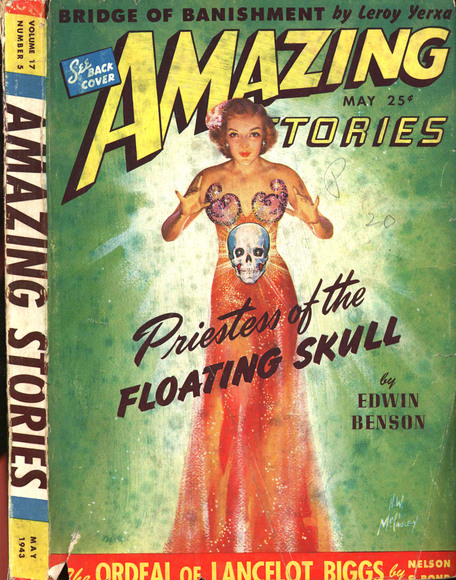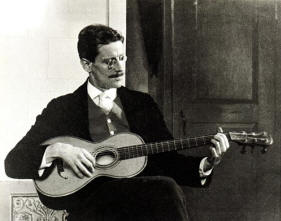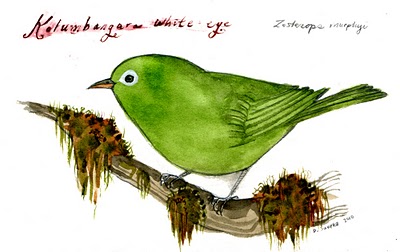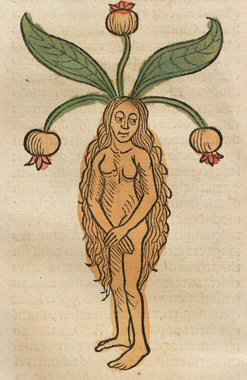You will need to keep your wits about you, now, to manoeuvre the fierce tongs with precision, on the hop. I realise, having skipped the first page, that you have no idea what I am talking about, but you are just going to have to catch up as best you can. If the mitten on your left hand is smouldering, as is probably the case, take it off, place it somewhere out of harm’s way, and put on one of the spares from the pile. Try to do this without letting go of the fierce, fierce tongs in your other hand, and keep hopping. You should try to stray no more than a couple of yards from the skirting-board. If the room has been built without a skirting-board, as can happen in some barbaric buildings, summon one into being, visually, through the power of your imagination. An imaginary skirting-board may not pass muster with certain jaundiced souls, but your soul is not yet jaundiced, is it? At least, it shouldn’t be, not while you brandish the fierce, fierce, fierce tongs, and hop.
The Worm In The Bud : Notes For Your Reading Group
You will all be discussing The Worm In The Bud in your Hooting Yard Reading Groups, so here are some useful notes and guidelines for discussion.
Terms Used
Bud – In plants, a flower or leaf at any stage of growth until fully opened.
Sprig – A shoot, twig, or spray of a plant, shrub, or tree.
Worm – Any animal that creeps or crawls.
Babinsky – Lumbering, walrus-moustached, psychopathic serial killer.
Dog – A domesticated carnivorous mammal, Canis familiaris (or C. lupus familiaris), which typically has a long snout, an acute sense of smell, non-retractile claws, and a barking, howling, or whining voice, widely kept as a pet or for hunting, herding livestock, guarding, or other utilitarian purposes.
Copper – Slang term for plod.
Terms Not Used
Detective Captain Cargpan – Babinsky’s Nemesis
Nemesis – An agent of retribution
Agent – When used in the term Special Agent denotes a rank similar to Detective Captain in certain police, copper, or plod hierarchies.
Questions And Guidelines For Discussion
Why do you think the narrator enters a copse rather than, say, a spinney?
Make a list of the kinds of plants likely to be found in a copse far from the nearest town.
The narrator tells us his hands are hairy. Are yours?
Give a detailed character sketch and potted biography of Zoltan.
Embroider a counterpane similar to the one across which the worm crawls.
Do you think Babinsky is (a) evil, or (b) sick? If and when he is eventually caught, do you think he should be (i) confined to a prison, (ii) confined to a lunatic asylum, (iii) hacked to pieces by an angry mob, or (iv) allowed to escape scot free to resume his catalogue of enormities?
Why do you think the narrator drinks Squelcho! rather than a nice piping hot cup of tea?
When he titled one of his angry Scottish novels How Late It Was, How Late, do you think angry Scotsman James Kelman was thinking about your own Hooting Yard Reading Group and its tendency to continue wittering on and on until the cows come home?
Even More Airy Persiflage
At Airy Persiflage, the golden-voiced Mister Nizz recites useful hoofprint advice first delivered to readers and listeners here at Hooting Yard. Mr Key is apparently the “favourite hard-living surrealist” chez Nizz, though at least two of those terms are decisively erroneous. Links to earlier splendid readings by the Nizzter are here and here. Listen and learn.
The Worm In The Bud
I plucked a bud from a sprig. It was a gorgeous sprig, and its gorgeousness was unimpaired by my plucking. It bore buds beyond counting, and I would defy even the most eagle-eyed of observers to pinpoint the spot on the sprig from which I plucked the bud. A boy scout or girl guide, set a challenge to ascertain if the sprig were whole or had suffered a tiny depredation, would have failed, I am sure, as sure as eggs is eggs. But there were no scouts or guides hereabouts, nor even Woodcraft Folk, for the area had been cordoned off, by coppers, following an enormity. Oh, perhaps a police officer’s child, aptly chaperoned, might have been allowed in. But it was unlikely, for this was remote woodland, far from town, far from where tinies gather and cavort.
The enormity, involving slaughter and an axe and a great deal of blood and gore had, it was assumed, been committed by the psychopath Babinsky, of whom there was no sign in the immediate vicinity. He was perhaps hiding in a copse. Dogs were sniffing. It was by dint of the dogs that I had been allowed through the cordon, for I am a specialist in the interpretation of dog behaviour. It has been said of me, cruelly but with some measure of truth, that I understand dogs better than I do humans. Sometimes, I wake suddenly in the night, barking and howling. My hands are hairy.
In plucking the bud from the sprig I was not neglecting my duties. We had entered the copse, the dogs and I, in search of Babinsky, and it was the work of a minimoment to pluck the bud from the sprig. I barely thought about it. The woodland was dense, and it was in the densest of thickets one was most likely to find a killer concealed, and as I plodded in the wake of the sniffing dogs I had occasion, now and then, to raise my arms to push past sprigs and boughs that would otherwise have impeded me. In one such manoeuvre, I plucked a bright bud from a gorgeous sprig, absent-mindedly. I popped the bud into my pocket and forgot about it.
Of Babinsky, we found no trace that day, in that copse. When dusk approached, we called off the search. The dogs were driven back to their pound by my assistant, Zoltan, and I went home to write my report. I work so much better at my kitchen table, with a plate of toast and a tumbler of Squelcho!, than I do at my office desk, anent the pound, with all that dog din. In any case, my report was brief, for the dogs had sniffed in vain. I added my signature with a flourish and my colophon, rolled the paper into a cylinder and shoved it into a canister and sent it whizzing off down the pneumatic tube which connects my kitchen with police headquarters, elsewhere, elsewhere. I drained my tumbler of the last dregs of Squelcho! and found myself at a loose end.
If you were to conduct a straw poll of police dog behavioural experts at loose ends, I expect you would discover a huge variety of responses. Some might stare into space, some engage in a hobby such as carpentry or beekeeping, some might pour out another tumbler of Squelcho! and knock it back as if harrowed by thirst, some might go striding across the moors chanting the chant of the moors strider. To give but four examples. None of these appealed to me, there and then, so I rummaged in the pockets of my jacket, which I had not yet taken off and hung upon its hallway hook. Thus my fingertips fastened upon the bud I had plucked from the sprig in the copse. I am no botanist, not even an amateur one, but I wondered if the bud would sprout were I to plant it in a pot of damp soil.
No longer at a loose end, I tracked down, within my quarters, a pot and some soil. The soil was dry, so I added, from a spigot, a spot of water to endamp it, and I placed the pot of soil on a shelf. Then I pressed the bud into it, to reverse iceberg depth. That is, one-eighth of the bud was submerged in the soil while seven-eighths remained visible. Now I would wait for it to grow. Reasoning that it might be intimidated by the glint in my eye if I peered at it for hours upon end, I took off my jacket and hung it upon its hallway hook and went upstairs to bed, where I soon enough fell into a deep sleep, troubled only by a couple of occasions, in the depth of night, when I woke suddenly, barking and howling.
Also in the depth of night, unbeknown to me, there stirred, in the bud I had planted in soil in a pot on my shelf, a worm. This worm had lain concealed in the bud as thoroughly as Babinsky had lain concealed in the copse. Yes, despite the best efforts of my sniffer dogs, the psychopath had been there all along! Now, of course, under cover of the night, as I slept in my bed and the dogs slept in their pound, he fled to another hiding place, a cave or a spinney or a boarded-up chalet at a seaside resort, just as the worm fled the bud. Wriggling and creeping, like an abomination mentioned in the Bible, the worm emerged from the bud, and crept across the soil and over the rim of the pot and down the pot’s side and on to my shelf and across my shelf to its bracket and down the bracket and down the wall and over the wainscot to the floor and across the floor to the foot of the staircase and then up the stairs one by one to the pine boards on my mezzanine and across the boards into my bedroom and up the bedpost and on to the counterpane and along the counterpane towards the pillow and on to the pillow whereon my head lay as I slept my untroubled sleep. The worm in the bud had become the worm upon the pillow, and it was a canker worm!
The worm was crawling across the pillow towards one of my ears, clearly intent upon entering my head and burrowing into my brain, therein to lay its canker-worm eggs, when I sat up with a start and barked and howled. The sudden disturbance discombobulated the worm, sufficiently for it to change tack and move off towards the foot of the bed, where it was set upon by a bedbug. My barking and howling done, for the time being, I slumped back on my pillow and fell fast asleep, unaware of the tiny battle being fought near my tootsies, a fight to the death between canker-worm and bedbug from which only one would emerge triumphant. But which one?
H2O Pod
Fee Fi Fo Saffron Walden
Recently I posted a piece about a giant who roars “Fee Fi Fo Fum!” and smells the blood of an Englishman, and a couple of years ago I became enthusiastic about Thomas Nashe (1567-c.1601) among whose works is the splendidly titled Have With You To Saffron Walden – which, alas, I never got round to reading. Had I done so, I would already have learned what I found out today.
Father had taken us to see John Gielgud in the title role [of King Lear] at Stratford-upon-Avon, and although Gielgud was marvellous, it was the words of Poor Tom, the Bedlam beggar on the stormy heath (actually Edgar, in disguise), that still rang in my ears:
Child Rowland to the dark tower came;
His word was still
Fie, foh, and fum!
I smell the blood of a British man!
“Did Shakespeare steal that from Jack and the Beanstalk?” I had whispered in Daffy’s ear. Or had the fairytale borrowed the words from Shakespeare? “Neither,” she whispered back: both had cribbed them from Thomas Nashe’s Have With You To Saffron Walden, which, having been staged in 1596, pre-dated them.
This is from The Weed That Strings The Hangman’s Bag by Alan Bradley (2010), the second of his Flavia de Luce mysteries. These are new to me, but I am pleased to tell you that the heroine is an eleven-year-old amateur chemist and sleuth – a plucky and resourceful tot who bears a striking resemblance to our very own Tiny Enid, without the fascism and the club foot. It is a hugely enjoyable read, as one might expect from a book which makes mention of “a pair of gutta-percha motoring galoshes (‘Ideal for Country Breakdowns’)”.
Quiz Time At The Dabbler
Quiz time in my cupboard at The Dabbler this week. Match nine passages of sober and sensible twentieth-century prose to the works in which they originally appeared, tainting the very air with a shuddering miasma of crepitant dread!
A Grand Plan
Every so often I find myself devising grand schemes and projects. These rarely come to fruition. One that did, probably because it was modest in its ambitions, was last year’s set of alphabetic postages here at Hooting Yard, where I adopted the constraint of posting twenty-six consecutive entries, entitled A through to Z. One that didn’t was the plan that my pre-Wilderness Years pamphlet House Of Turps would be the first volume in a series of twenty-six. I think this scheme failed primarily because it was never clear in my then-fuddled brain how the succeeding twenty-five pamphlets were intended to relate to the first one.
So the likelihood is that the preposterous plot hatched this morning will remain incomplete, if indeed it is ever even begun. It occurred to me that I ought to devote my time to tippy-tapping a blog postage for every single word listed in the Oxford English Dictionary, in alphabetical order. According to Oxford Dictionaries, “the Second Edition of the 20-volume Oxford English Dictionary contains full entries for 171,476 words in current use, and 47,156 obsolete words. To this may be added around 9,500 derivative words included as subentries”. Since January 2007 there have been 1,607 Hooting Yard postages (this is the 1,608th) to which one can add just short of a thousand entries in the archive for the previous format between 2003 and 2006. Clearly I would be taking on a gargantuan task, particularly given that I would want each and every postage to be packed with sweeping Dobsonian paragraphs of majestic prose. Even if I confine myself to the obsolete words – a highly tempting grand plan in itself – it would take years and years of toil, quite possibly more years than remain to me on this spinning terrestrial globe.
I may, however, make a start, in the near future. Foolhardy, I know, but then I am living in a fool’s paradise, am I not?
The One True Pod
Improve Your Danish Language Skills
I noted below that when my Flemish-speaking mother wanted to improve her English, she worked her way through the classics of literature. Nowadays, we just slump in front of the television and watch foreign-language thrillers on BBC4. Thus I have embarked upon a crash-course in Danish by watching, somewhat belatedly, Forbrydelsen, or The Killing, the highly popular murder ‘n’ knitwear detective series. Apart from being a splendid example of Nick Cohen’s observation that ethnic minorities are never the villains in BBC cop shows, the series has done wonders for my Danish language skills. I think I could successfully apply for an IT post in Copenhagen, armed with these additions to my vocabulary:
English : computer. Danish : compuder.
English : password. Danish : password.
English : fuck-up. Danish : fuck-up.
Oolississ
Not only has Hooting Yard been in security lockdown for a week or so, but Mr Key has neglected to keep abreast of the goings-on in those corners of Het Internet to which his fuming brain is usually attuned. I am thus a few days late in drawing your attention to Brit’s excellent piece in The Dabbler on Joyce’s Ulysses.
No mention of that book can ever be allowed to pass without my chucking in the following addenda:
1. Here are extracts from two contemporary reviews of Ulysses, written when it was strange and new:
“An immense mass of clotted nonsense” — Teachers’ World
“The maddest, muddiest, most loathsome book issued in our own or any other time… inartistic, incoherent, unquotably nasty … a book that one would have thought could only emanate from a criminal lunatic asylum” — The Sphere
2. James Joyce always pronounced the title as Oo-liss-iss.
3. My late mother made a famous pronouncement on Joyce. Born in Belgium, she came to Britain in her early twenties after her marriage to my father. One of the ways she chose to improve her English was by reading through the canon – Jane Austen, the Brontës, George Eliot, Dickens, et cetera. She eventually decided to tackle Ulysses. Casting it aside after a few pages, she declared – after a guttural Flemish expostulation which defies accurate transcription, but sounds more or less like the correct pronunciation in Flemish of the final part of the name Vincent Van Gogh – “James Joyce – dat man is a fool!”
Dabbling De Foe
 Hooting Yard remains in what I like to think of, melodramatically, as a security lockdown, but my cupboard over at The Dabbler has not been neglected. Yesterday it contained some useful tips on dealing with your foes, if you have any. Meanwhile, I may be approaching the end of my unplanned yet necessary diversion away from the important business of tippy-tapping majestic prose, and should be back soon.
Hooting Yard remains in what I like to think of, melodramatically, as a security lockdown, but my cupboard over at The Dabbler has not been neglected. Yesterday it contained some useful tips on dealing with your foes, if you have any. Meanwhile, I may be approaching the end of my unplanned yet necessary diversion away from the important business of tippy-tapping majestic prose, and should be back soon.
Matters Of A Poddy Nature
Pin back your ears and listen to the latest Hooting Yard podcast, featuring John Ruskin, Robin Hod the bricklaying outlaw, Dr W B Crow, Grand Master of the Order of the Holy Wisdom, and some stuff about the light in Cornwall…
Tiny Birds
Mr Key is taking a brief break from Hooting Yard duties to attend to a number of matters in the mundane world. Rather than wailing and gnashing your teeth and rending your garments in the extremity of despair, you should pop round to Diana Sudyka’s Tiny Aviary. I am most grateful to reader Richard Carter for telling me about it. Don’t miss the plaster monster loon!
Homuncudabbling
Over at the super soaraway Dabbler this week I provide readers with some tips on how to make a homunculus. These miniature persons can be very helpful, if a bit eerie. Hooting Yard certainly couldn’t cope unless we had a little band of homunculi scurrying about taking care of business and protecting us from harm.





